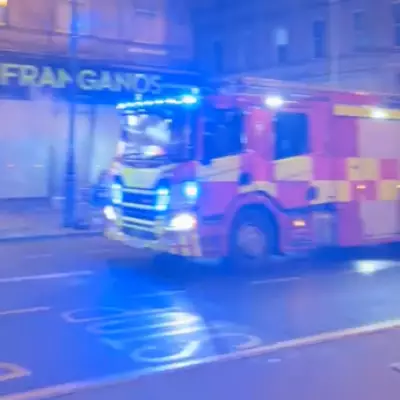
In a shocking revelation that lays bare the brutal reality of Vladimir Putin's Russia, a British investigative journalist has spoken of the terrifying moment he realised a single email could have signed his death warrant.
The journalist, who has extensively covered Russian affairs and the Kremlin's dark underbelly, described the heart-stopping panic that ensued after contacting a source close to opposition leader Alexei Navalny. "I sent an email that could have killed me," he stated, the gravity of his words echoing the deadly serious nature of modern investigative journalism in Putin's crosshairs.
The Chilling Realisation
What began as routine correspondence suddenly turned into a potential death sentence when the journalist realised his communication could be intercepted by Russian security services. The stark reality of his situation hit home: he had become a potential target in Putin's campaign of intimidation and violence against perceived enemies.
"There are moments when journalism stops being about headlines and deadlines," he explained, "and becomes about survival. This was one of those moments."
Pattern of Putin's Persecution
The journalist's harrowing experience comes amidst a well-documented pattern of Russian aggression against critics and journalists:
- The poisoning of Sergei and Yulia Skripal in Salisbury using Novichok nerve agent
- The assassination of Alexander Litvinenko with polonium-210 in London
- The imprisonment and eventual death of Alexei Navalny in suspicious circumstances
- Numerous other critics meeting untimely deaths under mysterious conditions
These incidents form a disturbing pattern of extraterritorial violence that has repeatedly violated British sovereignty and endangered UK citizens.
Living in the Shadow of Fear
The journalist described the profound psychological impact of realising he might be on a Kremlin hit list. "It changes everything," he revealed. "You start looking over your shoulder. Ordinary things - a car that's been parked too long, an unexpected package - become potential threats."
This climate of fear represents exactly what Putin's regime hopes to achieve: the silencing of dissent through intimidation, whether at home or abroad.
A Warning to Others
His story serves as a stark warning to journalists, researchers, and anyone investigating Russian affairs. The threat is real, sophisticated, and utterly ruthless. The methods employed by Russian operatives have evolved from crude violence to sophisticated chemical and biological weapons that can be deployed on foreign soil.
Yet despite the very real dangers, the journalist remains committed to uncovering the truth about Putin's regime. "The only thing more dangerous than speaking out is staying silent," he concluded, embodying the courage that defines the best of investigative journalism.
As Britain continues to grapple with the threat posed by state-sponsored assassination attempts on its soil, this journalist's story stands as a powerful testament to both the dangers of truth-telling and the absolute necessity of continuing to do so.





